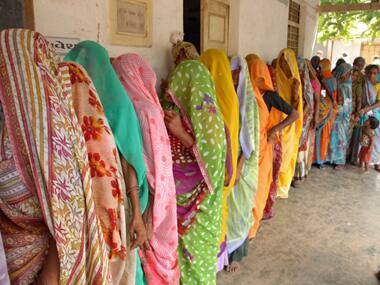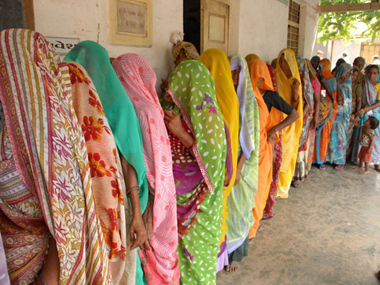When Tamil Nadu’s charismatic film star-turned-Chief Minister MG Ramachandran introduced the Midday Meal Scheme in Tamil Nadu - to provide school-going children one nutritious cooked meal a day - it was dismissed as a “populist” extravagance that would burden the state exchequer.
Cynical commentators at that time derisively wondered if schools were to be converted into hotels or choultries. And yet, unmindful of the criticism, MGR, as he was better known, expanded the programme (which had first been introduced in the State in the 1960s by then Chief Minister K Kamaraj).
The scheme proved enormously successful - and not just from the point of view of securing popular support from poor families that were happy that their school-going children could secure at least one protein-rich meal a day. The World Bank, from whom the Tamil Nadu government secured a loan for the scheme, commended it highly for the reason that it not only improved nutritional intake among school children, it also led to dramatic improvements in school enrolment, particularly among girl children. It would lay the foundation for Tamil Nadu’s improvement on the index of human development over the next decade.
Over time, governments in other States too woke up to the tangible and intangible benefits that accrue to their people from this scheme. And even though these States didn’t always replicate the scheme as it was in Tamil Nadu - some States opted to give food grains, rather than cooked food, to the school children - it remains one of the shining examples in India of an innovate State policy finding traction and being emulated in other States.
Much like in China, where Deng Xiaoping used outlier provinces as “laboratories” to test the efficacy of economic reforms - and expanded them nationwide if they succeeded but spiked them if they failed - the federation of Indian States has the potential for one State to learn from successful models of policy interventions elsewhere. There is vast scope for “peer learning” - where States learn from one another.
Impact Shorts
More ShortsBut the striking thing is that barring notable exceptions, like the Midday Meal Scheme, there is very little of such “peer learning” going on in India. And this has policy experts puzzled. “When surveying the present scene in the states, one is faced with a quandary,” writes Milan Vaishnav, an associate in the South Asia program at the Carnegie Endowment for International Peace, in Caravan magazine .“Given the incentive for inter-state competition and rivalry, why aren’t India’s states learning more from one another, especially the laggards from the leaders?”
The question acquires particular significance because increasingly the States are the engines of economic growth, with the best of them propelling themselves at - in some cases - twice the national average growth rate. The better-performing States have also proved better at expanding economic freedoms rather more than the Central government has been, particularly in the period from 2005, according to a recently released report from Cato Institute.
The report, titled Economic Freedom of the States of India 2012 ( available here ), is authored by Swaminathan S Anklesaria Aiyar, Research Fellow, Center for Global Liberty and Prosperity; Bibek Debroy, Professor, Centre for Policy Research, Delhi; Laveesh Bhandari, Founder/Director, Indicus Analytics; Ashok Gulati, Chairman of the Commission for Agricultural Costs and Prices (CAP), Government of India.
The report points out that on the index of the Economic Freedom of the World, as devised by the Fraser Institute, India has slipped badly in advancing economic freedom. India’s index score (for economic freedom) rose from 5.15 in 1980 to a peak of 6.72 in 2005. But since then, it has declined marginally to 6.26 in 2010 (the last year for which the data is available).
From a peak ranking of 76th (out of 144 countries) in 2005, India fell to 111st place in 2010. The areas in which it performed poorly, which contributed to this slide in its ranking, relate to size of government ( which we had pointed out here ); legal system and property rights; sound money policies; and regulation.
But the story in the States of the Indian Union is vastly different. “The good news,” the report notes, “is that economic freedom in the states of India has improved even though it has slipped at the national level. In other words, state capitals have been doing more to improve economic freedom than New Delhi.”
Not surprisingly, Gujarat tops the economic freedom index of Indian States, displacing Tamil Nadu from the No 1 slot in 2011. Its rankings in respect of the sub-indices that go to determine the overall ranking have all improved since 2011. As the report notes, Gujarat has had “major successes in agriculture, social welfare programmes, water resource management. All of this is being achieved without an inordinate increase in the size of the government.”
[caption id=“attachment_657081” align=“alignleft” width=“380”] there is one developmental lesson that virtually every State - and even the Centre - can learn from Gujarat of the past decade, it is to expand economic freedoms. AFP[/caption]
there is one developmental lesson that virtually every State - and even the Centre - can learn from Gujarat of the past decade, it is to expand economic freedoms. AFP[/caption]
Other States - including Maharashtra and Tamil Nadu - too fare well in the overall index. But although Maharashtra has improved on its index score, it has fallen in the overall rankings from 10th in 2009 to 13th today, largely because some of the other States have outperformed it. States like Bihar have improved on their index scores since 2009, but are stuck at the same 20th spot from then until now.
Seen in that sense, Gujarat’s success in expanding economic freedom has been the big story of the past decade, which underlies the superior success it has had in expanding economic activity, even for a State that is so industrialised. As the Cato Institute establishes, if there is model that is worthy of replication among Indian States, it is Gujarat’s - not just for the undefinable “development” it has fostered, but for providing an enabling environment for economic activity to flourish - by getting the government out of the way.
What inhibits other States from following the Gujarat model? Obviously, politics plays a big part of it. Even in the face of anecdotal and empirical evidence of the superiority of the Gujarat model, leaders of other political formations and even media commentators have taken to running it down - merely to score polemical points. No criticism of the “Gujarat model”, for instance, was complete without invocation of the State’s “malnutrition levels”. But that myth has been busted with the most recent audit report of the ICDS programme, which shows that Gujarat has improved the most when it comes to child malnutrition ( more here ).
For sure, there are other States from whom too the laggards can learn if they wish to vault up the rankings - not just of corporate-led industrial development but also human development. But if there is one developmental lesson that virtually every State - and even the Centre - can learn from Gujarat of the past decade, it is to expand economic freedoms. All else will follow.
But to acknowledge that and emulate that, it needs minds to be open and for eyes not to blinkered by ideological rigidity and political cussedness.
Venky Vembu attained his first Fifteen Minutes of Fame in 1984, on the threshold of his career, when paparazzi pictures of him with Maneka Gandhi were splashed in the world media under the mischievous tag ‘International Affairs’. But that’s a story he’s saving up for his memoirs… Over 25 years, Venky worked in The Indian Express, Frontline newsmagazine, Outlook Money and DNA, before joining FirstPost ahead of its launch. Additionally, he has been published, at various times, in, among other publications, The Times of India, Hindustan Times, Outlook, and Outlook Traveller.
)